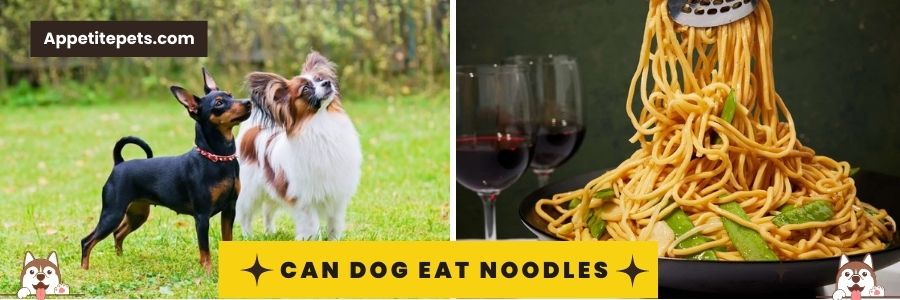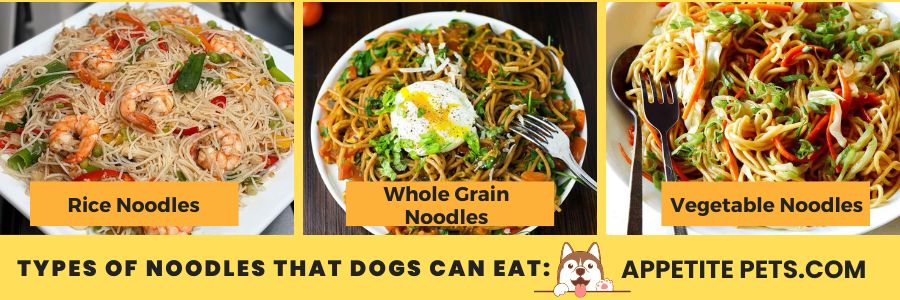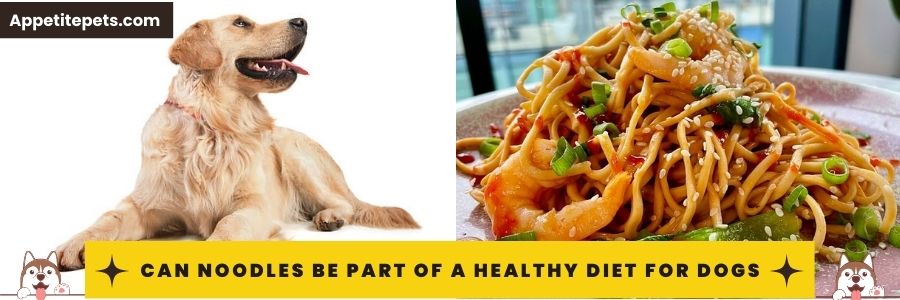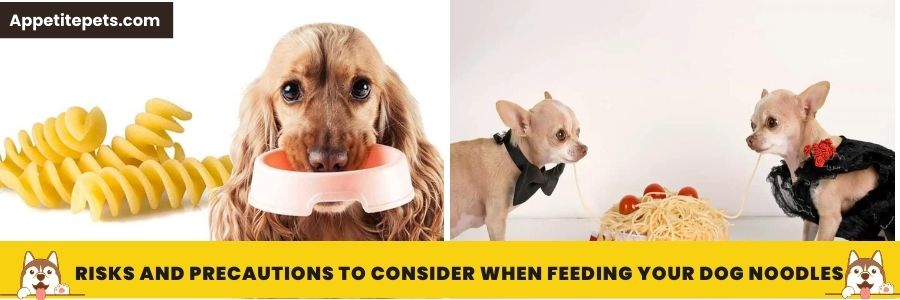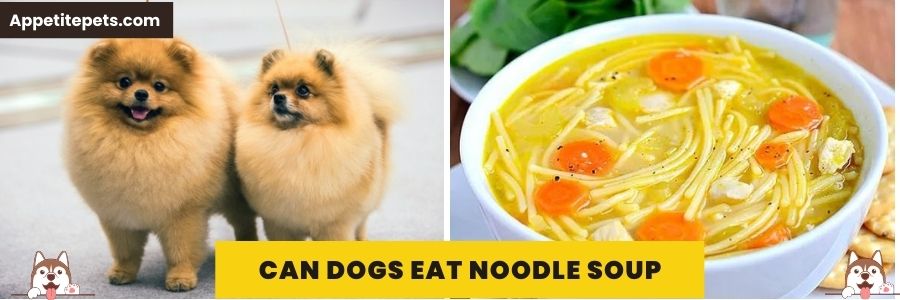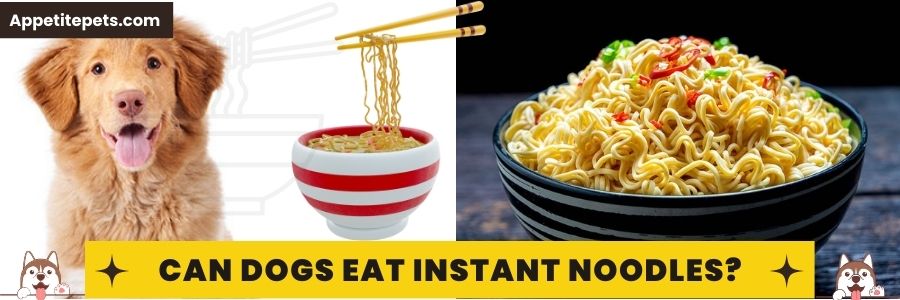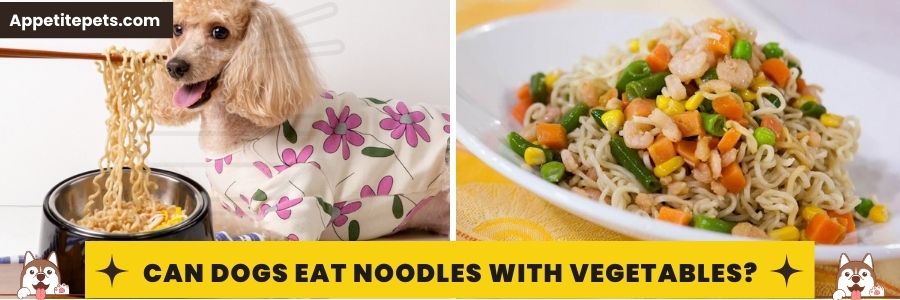Can Dog Eat Noodles? Everything You Need to Know
Can dogs eat noodles? If you’re wondering if your dog can eat this popular dish, keep reading for a detailed guide on what kinds of noodles are suitable for dogs, how to prepare them, and the amount that your dog can eat.
You’re likely familiar that dogs having different food preferences than humans. While some human foods are safe to share with your pet, others can be hazardous or even toxic.
Noodles are a popular human food that many animal lovers are curious about. Can dog eat noodles, or is this a meal that our four-legged friends should avoid?
Types of Noodles That Dogs Can Eat:
When it involves feeding your dog noodles, it’s essential to pick a type that is both safe and healthy for them to consume. Noodles that are generally thought safe for dogs are as follows:
Rice Noodles: Rice noodles are an excellent choice for dogs, particularly those with responsive stomachs or food allergies. They are gluten-free and formed from rice flour and water.
Whole Grain Noodles: Whole grain noodles, such as whole wheat or brown rice noodles, can provide fiber and nutrients to dogs.
Vegetable Noodles: Noodles made from zucchini or sweet potato, for example, can be a healthy and reduced option for dogs. They are also high in vitamins and minerals.
How to Prepare Noodles for Your Dog:
Once you’ve decided on a safe form of noodle for your dog, you must properly prepare them. Here are some pointers for preparing food noodles for your pet:
Cook the noodles as per package directions, but don’t add any seasonings or sauces that your dog might find harmful.
To cool the noodles and eliminate any excess starch, rinse them with cold water.
Serve the noodles on their own or with some cooked, lean meat or vegetables.
Can Noodles Be Part of a Healthy Diet for Dogs?
While noodles can be a healthy addition to your dog’s diet in reasonable quantities, they should not constitute a significant portion of their diet.
Here are some of the potential advantages and disadvantages of feeding your dog noodles:
Benefits:
Noodles can be a beneficial energy source for dogs, especially active dogs.
Whole grain and vegetable noodles would provide vitamins, minerals, and fiber that commercial dog food may lack.
Plain noodles are a bland, simple food option for dogs suffering from digestive upset.
Drawbacks:
♠ Noodles are high in carbohydrates, making them unsuitable for dogs who are overweight or diabetic.
♥ Noodles may contain additives such as sodium or preservatives that, in large quantities, can be harmful to dogs.
♦ Noodles should not be used in place of a well-balanced commercial dog food diet.
Risks and Precautions to Consider When Feeding Your Dog Noodles:
While noodles can be a nutritious and secure food for dogs when properly prepared and served, there are some consequences and precautions to be aware of. Here are some things to think about:
Certain types of noodles, especially those made from wheat or corn, may not be tolerated by dogs with food allergies or sensitivities.
Dogs with diabetes or obesity may be unable to tolerate the high carbohydrate content of noodles and should limit their consumption.
Noodles with a lot of seasoning or sauces may be high in salt and other ingredients that are harmful to dogs.
Uncooked noodles should never be fed to dogs because they are hard to digest and may pose a strangulation hazard.
Frequently Asked Questions About Dogs and Noodles:
Can dogs eat ramen noodles?
Ramen noodles are commonly packed with salt and other additives that are toxic to dogs. It is best not to feed your dog ramen noodles.
Can dogs eat pasta noodles?
In moderation, pasta noodles are safe for dogs to eat, but they should be plain and free of any sauces or seasoning.
How many noodles can I feed my dog?
The amount of noodles you can feed your dog is determined by their size, weight, and overall health. Noodles should account for no more than 10% of your dog’s regular diet.
Can dogs eat noodle soup?
Noodle soup may be high in salt and other ingredients that are harmful to dogs. It is best not to feed your dog noodle soup.
Can dogs eat udon noodles?
Udon noodles are composed of wheat flour and may incorporate additives that are harmful to dogs, such as salt, sugar, and flavorings. It is best not to feed your dog udon noodles.
Can dogs eat rice noodles?
Rice noodles can be a safe option for dogs to eat, but they should be plain and free from any seasoning or sauces.
Can dogs eat instant noodles?
Instant noodles are typically high in sodium and other additives that can be harmful to dogs. It’s best to avoid feeding your dog instant noodles.
Can dogs eat soba noodles?
Soba noodles are made from wheat dough and may contain sodium, sugar, and other ingredients that are toxic to dogs. It is best not to feed your dog soba noodles.
Can dogs eat spaghetti noodles?
In moderation, spaghetti noodles are safe for dogs to eat, but they should be plain and free of any sauces or seasoning.
Can dogs eat noodles with vegetables?
Selecting the right vegetable and preparing it correctly can add nutritional value to your dog’s diet. Onions and garlic, for example, are two vegetables that should never be fed to a dog.
If you want to add veggies to your dog’s noodle dish, it’s best to get their vet’s approval first.
Can dogs have macaroni and cheese?
What about the dogs? Is it safe to feed them macaroni and cheese? There isn’t a simple solution; you’ll have to give it some thought.
Cheese, milk, and butter are common ingredients in macaroni and cheese, and they are all toxic to dogs if consumed in large enough quantities. Cheese and milk can cause gastrointestinal issues like nausea and vomiting, while butter’s high-fat content has been linked to weight gain and other health problems.
In addition, the salt, seasonings, and artificial flavors found in many varieties of macaroni and cheese can be harmful to dogs when consumed in excess.
Macaroni and cheese are not good for your dog and should be avoided at all costs. If your dog has a weak stomach or a background of digestive issues, it may be safe to feed it a small amount of plain, cooked macaroni. However, the addition of cheese, milk and butter can be harmful.
Conclusion:
I was wondering if dogs could eat noodles. Yes, but only if you pick the right kind of noodle and cook it properly. When given in moderation and as part of a well-balanced diet, noodles can be a delicious and nutritious addition to your dog’s daily fare.
Always check with your vet if you have any concerns about feeding your dog noodles, and remember the possible risks and safety measures associated with doing so. Noodles are a safe and tasty treat for your pet if you prepare them properly.
